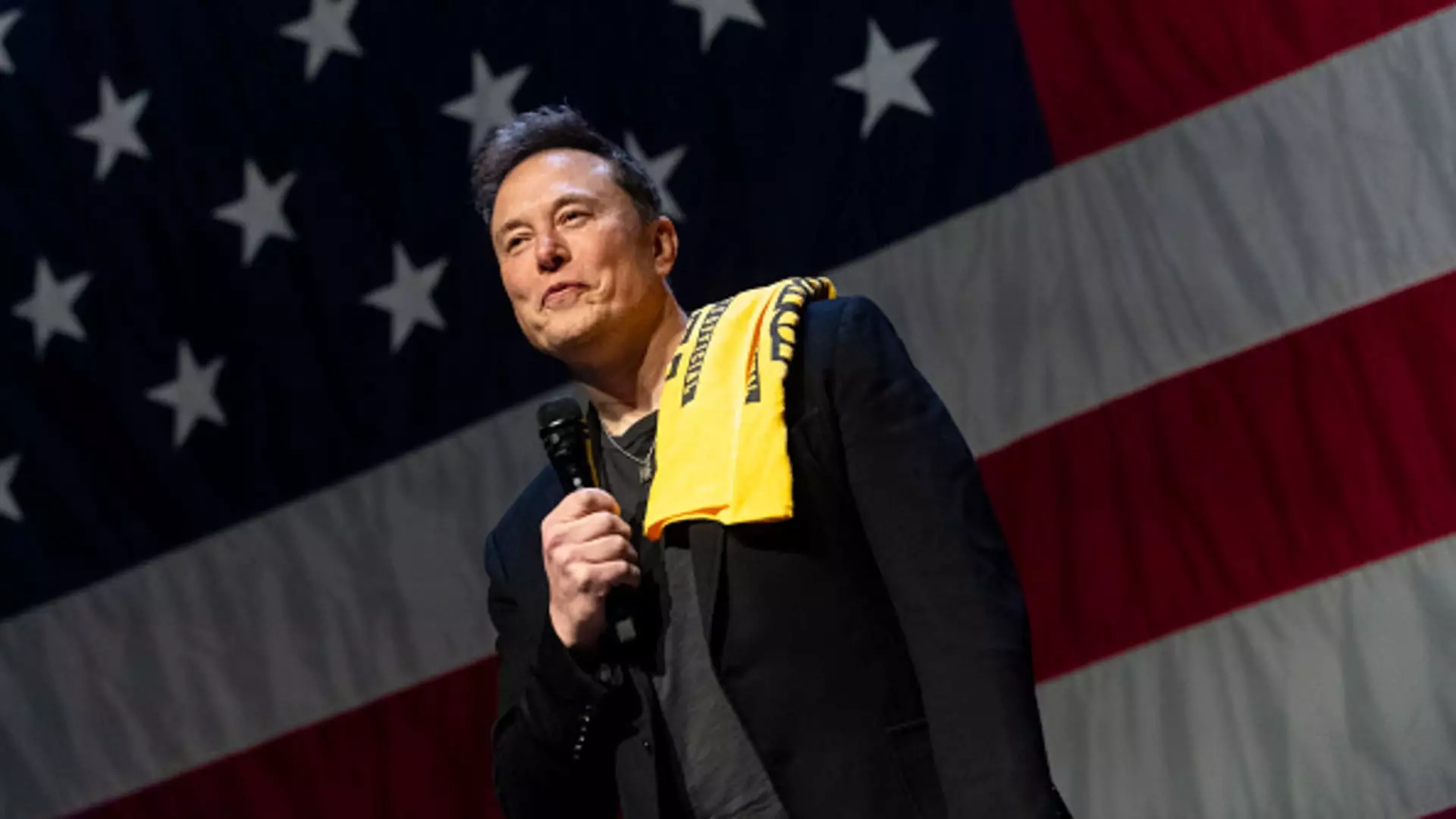The ongoing controversy surrounding Elon Musk’s political action committee (PAC) and its proposal to distribute $1 million prizes to voters in key swing states has reached a critical juncture. Recently, the Philadelphia District Attorney’s office initiated legal action to impede this practice, which they argue constitutes an illegal lottery. The case, filed by DA Larry Krasner, now sits at the intersection of state and federal law, highlighting the complexities of election-related activities and campaign finance in the United States.
As the lawsuit moves through the judicial system, a notable point of contention arises: whether the case should be tried in state court, as Krasner originally intended, or in federal court, where Musk’s attorneys have sought refuge. John Summers, a representative for Krasner, has stated intentions to shift the lawsuit back to the state court as quickly as possible. This strategy highlights the intricacies of jurisdiction and the legal playground where such high-profile cases are often contested.
Musk’s legal team argues that since America PAC is registered as a federal entity, it is not bound by state laws. They assert that while Krasner’s complaints involve state-level issues related to public nuisance and consumer protection, the core of the allegations addresses possible interference in a federal election. This claim reflects a broader struggle over how campaign activities, especially those involving financial incentives, are governed by different levels of legal scrutiny.
At the heart of Krasner’s lawsuit lies a provocative assertion that Musk’s giveaways constitute an unlawful lottery scheme aimed at manipulating voter behavior ahead of the contentious presidential race between Kamala Harris and Donald Trump. The implications of linking monetary incentives to political pledges raise serious ethical questions about the integrity of the electoral process. Krasner argues that such practices “lull” citizens into providing personal information in exchange for the chance to win substantial cash prizes, thereby distorting the democratic process.
Moreover, the situation is exacerbated by the ongoing scrutiny of America PAC’s actions by the U.S. Department of Justice, which had previously cautioned the organization about potential violations of federal election law. Despite the lack of formal legal action from the DOJ, the shadow of federal oversight looms over the contest, raising anxieties about the implications of such giveaways on the fairness of elections.
As the legal proceedings unfold, they are compounded by concerning reports of antisemitic attacks targeting DA Krasner, purportedly spurred by Musk’s social media followers. The dynamic now incorporates elements of personal safety and online harassment, emphasizing the far-reaching consequences of public figures’ social media engagement. With Krasner’s attorneys citing threats against the district attorney and even disclosing heightened security concerns based on social media activity, the case has evolved beyond a simple legal dispute into a discussion about the safety of public officials in the current digital landscape.
The fallout from this lawsuit extends into the larger discourse on election integrity in the United States. As financing and digital engagement become increasingly intertwined with the electoral process, questions about transparency, accountability, and ethical campaigning persist. Should such grand financial incentives be permissible when tied to political activism, or do they represent a slippery slope towards corruption?
Krasner’s lawsuit not only seeks to halt the lottery but also stands as a datum point for future discussions regarding the limits of financial influence in electoral politics. As American society grapples with the ramifications of high-dollar donations and incentives, this case symbolizes a pivotal moment that could influence how future political advocacy is conducted across the nation.
As this legal battle unfolds, the stakes are high—not only for Musk and his PAC but for the broader political landscape in the United States. The resolution of this case could set precedents both for campaign finance law and the ethical bounds of political campaigning. With potential rulings on the horizon, observers will be keenly watching to see how jurisdictional challenges are navigated and what this means for voter engagement tactics in future elections. The intersection of business, politics, and law is more relevant today than ever, and this case serves as a compelling flashpoint in that ongoing dialogue.

Leave a Reply